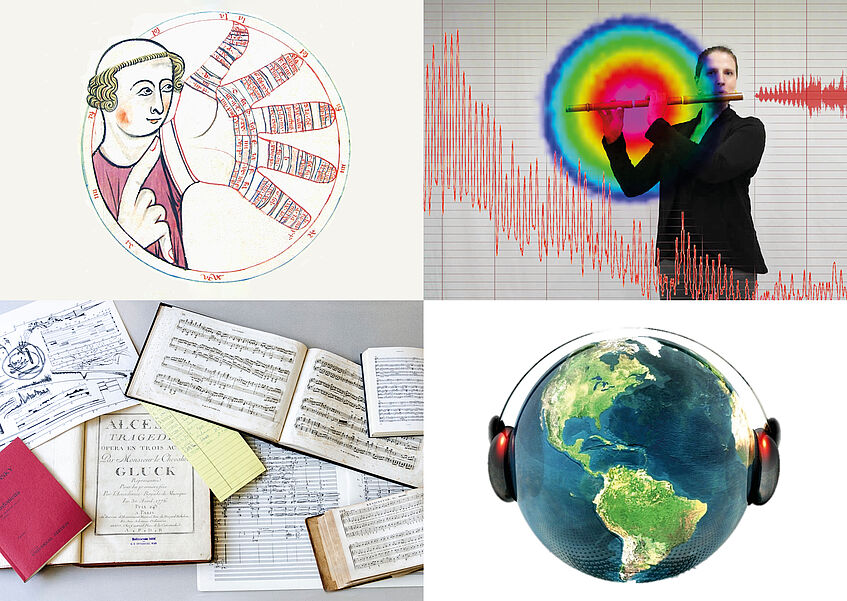Musicology (Master)

© Veneranda Biblioteca Ambrosiana, Institute of Musicology, University of Vienna, stock.adobe.com/Alperium
The master’s programme in Musicology aims at equipping students with the ability to critically reflect on music and society’s approach to it. Graduates are able to theoretically interpret music in its contexts and to critically examine concrete issues using subject-specific methods. Students acquire qualifications that are required for specific areas of application, such as knowledge of research design and knowledge organisation, editorial techniques, sound and image recording, librarianship, archive studies and museums, media, cultural management and cultural organisation.
Master of Arts
Degree Programme Code: 066 836
4 semesters / 120 ECTS credits
Language: German
NO entrance examination
Facts & Figures
- Students: n.a.
- Graduates in the last academic year: n.a.
- Number of semesters needed for graduation (median): n.a.
Data updated on: 03.12.2024
Attention
Instruction Language German
Please note that the instruction language of this programme is German. To start the degree programme, you need to hold a certificate of German proficiency on C1 level.
Admission Procedure
Information about the admission procedure
Information on Previous Studies:
In any case eligible degree programmes at the University of Vienna:
Getting started
Getting Informed
Study Programme
The master’s programme comprises one of three alternative compulsory modules and six elective modules, and requires students to write a master’s thesis and complete the master’s examination.
Five Concepts
which you will deal with during your studies:
- Ethnomusicology
- Music aesthetics
- Psychoacoustics
- Change of mediality
- Music reception
... and many more.
Overview of the programme structure & topics
Here you find the current offer of courses for this programme to gain better insight into the topics and structure. For more information please click on the respective level.
After Graduation
Graduates can pursue a career in the following occupational fields:
- research (academic institutions and other research institutions)
- teaching (universities, conservatories and similar educational institutions, music schools as well as institutions for adult education)
- media (radio, TV, print media, online media)
- cultural management (events and cultural communication)
- cultural industry (publishers, recording industry)
- music-related documentation services of all kinds (collections, libraries, archives, museums, music information centres)
- dramaturgy
- cultural administration and cultural policy.
Graduates' Perspective on the Degree Programme
Graduates ...
- say that this degree programme receives the grade: 2.2 (good)
- rate the level of difficulty as: 3.2 (appropriate)
→ These results are based on feedback from 30 graduates.
*You can find further assessments of the degree programme from its graduates’ perspective in the graduate survey of the master's programme in Musicology (in German).
Graduates ...
- find employment within 3 years after graduation on average.
*You can find further information on career entry and career paths in the tracking of graduates "MA Musicology".
